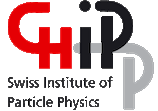Conveners
ML Workshop: IV session
- Mauro Donega (ETH Zurich (CH))
Short-distance (SD) effects in $b\to s l^+l^-$ transitions can give large corrections to the Standard Model prediction. They can however not be computed from first principles. In my talk I will present a neural network, that takes such SD effects into account, when inferring the Wilson coefficients $C_9$ and $C_{10}$ from $b\to s l^+l^-$ angular observables. The model is based on...
The event-wise multi-dimensional unfolding is performed with the machine-learning-based OMNIFOLD algorithm to measure the event shape observables of the minimum bias data of low pile-up proton-proton collisions at a centre-of-mass energy of 13 TeV collected by the CMS detector. A machine-learning-based uncertainty estimation method is used to estimate the unbinned uncertainty and the...
Graph neural networks (GNNs) have recently emerged as state-of-the-art tools across various scientific disciplines due to their capability to represent complex relationships in datasets that lack simple spatial or sequential structures. This talk will explore the application of GNNs in two contrasting experimental environments. The first of which is the deep full event interpretation (dFEI) at...
The SND@LHC experiment aims to observe and measure neutrinos produced at the LHC. The goal of the detector reconstruction is therefore to identify events as coming from neutrinos against the typical large background from neutral hadrons and muons, and to identify the type of neutrino interaction. Current reconstruction methods are based on reconstructing muon tracks and rectangular cuts, and...
Data Quality Monitoring (DQM) is a crucial task in large particle physics experiments, since detector malfunctioning can compromise the data. DQM is currently performed by human shifters, which is costly and results in limited accuracy. In this work, we provide a proof-of-concept for applying human-in-the-loop Reinforcement Learning (RL) to automate the DQM process while adapting to operating...
This talk will summarize a method based on machine learning to play the devil's advocate and investigate the impact of unknown systematic effects in a quantitative way. This method proceeds by reversing the measurement process and using the physics results to interpret systematic effects under the Standard Model hypothesis. We explore this idea in arXiv:2303.15956 by considering the...
